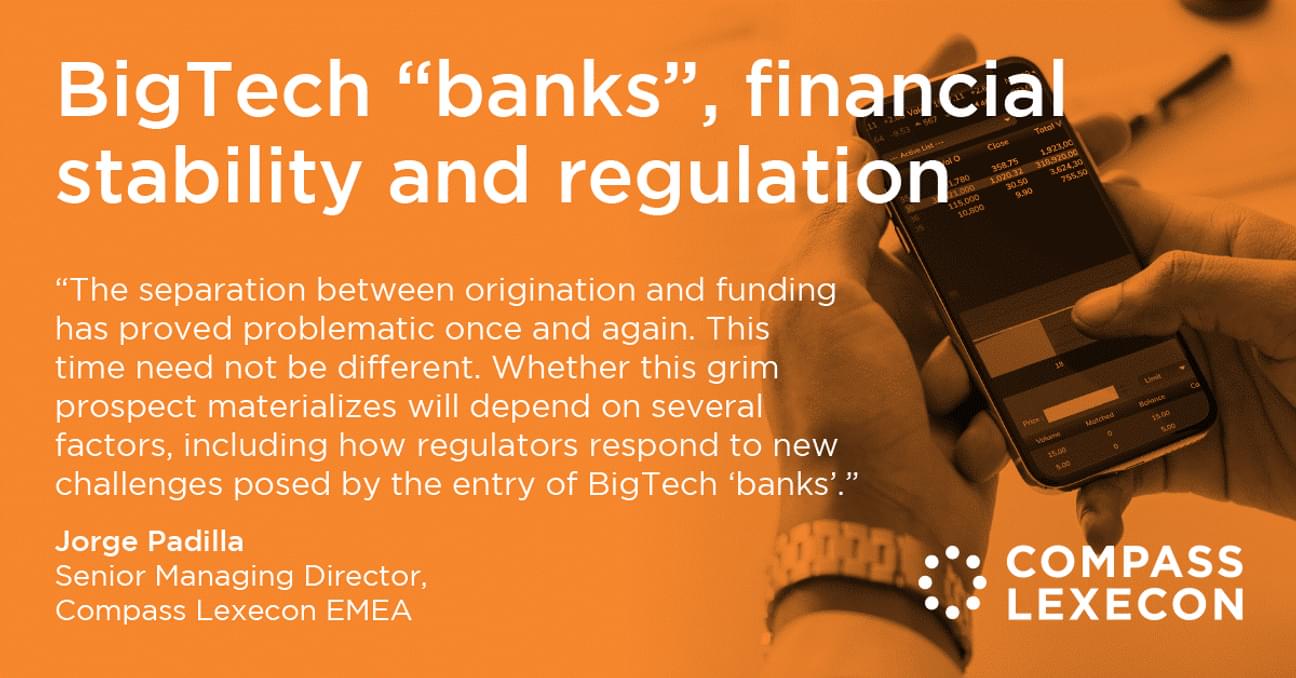BigTech “banks”, financial stability and regulation

Share
In an article published in the Spring 2020 Financial Stability Review, Banco de España, Jorge Padilla considers the financial stability risks caused by BigTech’s entry into retail banking and discusses alternative policy responses aimed at allaying those concerns in more detail.
The entry of BigTech platforms may transform the retail banking industry in radical ways: while it may spur much-needed competition in the short term, it may also increase financial instability and lead to even more concentrated credit markets in the long-term. Importantly, traditional banks may be forced to transform into “narrow banks”, limited to funding the loans originated and distributed by BigTechs. The separation between origination and funding has proved problematic once and again, from the savings and loans (S&L) crisis of the 80s and 90s to the financial collapse of the Great Recession. This time need not be different. Whether this grim prospect materialises, though, will depend on several factors, including how regulators respond to the new challenges posed by the entry of BigTech “banks”.
Banning BigTech entry cannot be the right policy response. BigTechs’ entry may facilitate financial inclusion and access to capital to households and firms that would be out of the market otherwise and may extend cheaper credit to all those that were already in. Their entry will force traditional banks to compete to the ultimate benefit of their customers: lowering commissions, offering better terms and conditions, and launching new products and services. Traditional banks have been protected against entry for years, always in the name of prudential regulation. Such a protectionist policy is harder to justify today.
So, what can be done? One option is to empower traditional banks to compete with the BigTechs by (a) eliminating regulatory asymmetries so that firms are regulated based on the activities they perform rather than according to their charter; (b) creating a level playing field with respect to data by requesting BigTechs to provide data to banks, as the latter are already asked to do; etc. A second option is to regulate BigTech’s activities in the credit market so that they stay away from predatory lending tactics and are requested to comply with the same fiduciary and investor protection obligations than traditional banks and other financial intermediaries. Last but not least, the solution may be to replace the private money created by traditional banks by public money created by central banks (i.e. sovereign money), so that loans are no longer funded by “run-prone” contracts, such as deposits and, hence, the separation between origination/distribution and funding no longer has systemic implications.
This article follows a previous paper written by Jorge Padilla and Miguel de la Mano in 2018, in which they discussed the logic and likely effects of the entry of BigTech players into retail banking.


